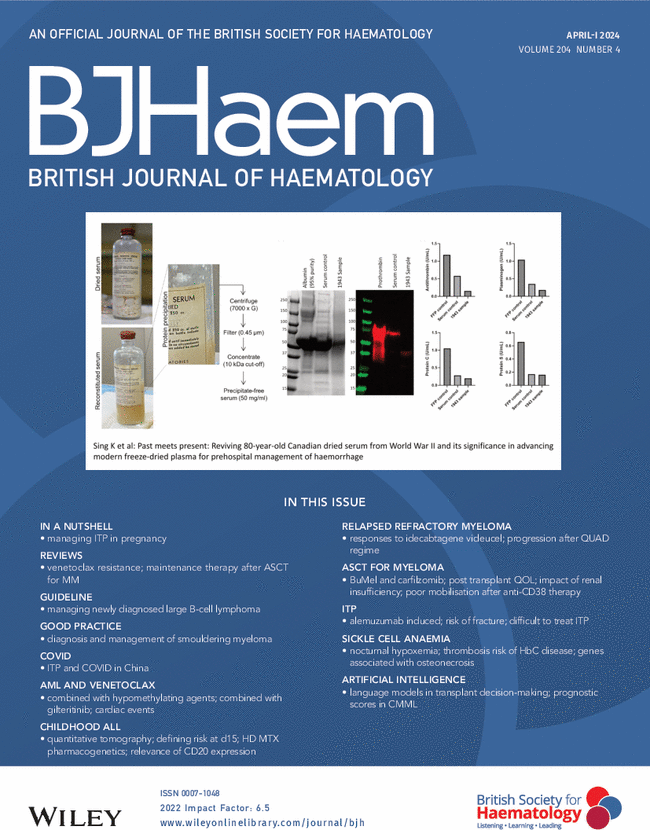The IKZF1 N159S mutation is associated with poor outcome and a distinct molecular profile in adult patients with AML.
IF 5.1
2区 医学
Q1 HEMATOLOGY
引用次数: 0
Abstract
IKZF1 mutations are recurrent alterations in acute myeloid leukaemia (AML), and hotspot point mutation, N159S, has recently been associated with unique gene expression and adverse risk. To better understand the molecular and clinical associations of IKZF1 N159S-mutated AML, we performed a pooled analysis of 4136 AML patients. IKZF1 N159 mutations were found in 39 patients (0.94%) in a dominant clonal constellation, indicating early genetic events. N159S mutations were associated with aberrant karyotype, significantly higher rates of myelodysplasia-related gene mutations, ELN2022 adverse risk and a particularly poor outcome, supporting the classification of IKZF1 N159S-mutated AML as a rare molecular subtype with adverse prognosis.
求助全文
约1分钟内获得全文
求助全文
来源期刊
CiteScore
8.60
自引率
4.60%
发文量
565
审稿时长
1 months
期刊介绍:
The British Journal of Haematology publishes original research papers in clinical, laboratory and experimental haematology. The Journal also features annotations, reviews, short reports, images in haematology and Letters to the Editor.

 求助内容:
求助内容: 应助结果提醒方式:
应助结果提醒方式:


